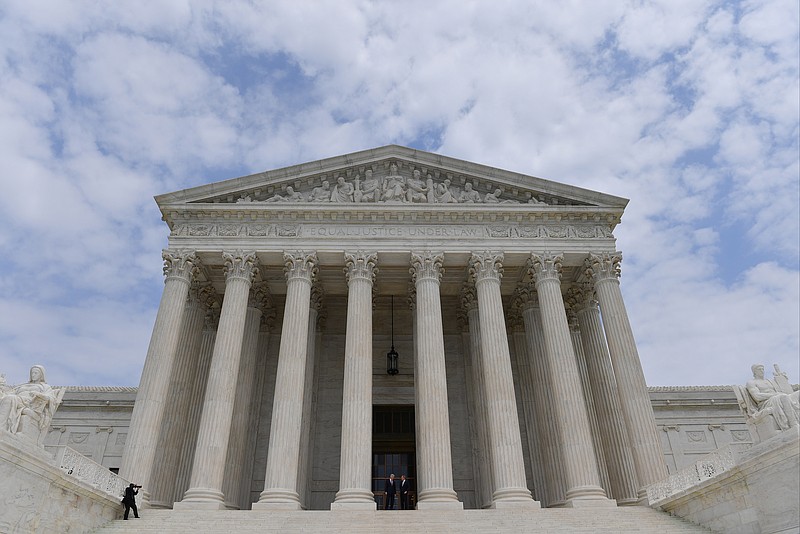WASHINGTON -- The Supreme Court on Tuesday once again put on hold a judge's order that relaxed election procedures because of the coronavirus pandemic, and the result will keep a referendum on partisan gerrymandering off the November ballot in Oregon.
The court's brief order provided no reasoning, and the vote was not announced. Justices Ruth Bader Ginsburg and Sonia Sotomayor noted their dissent.
But the action was pretty much in line with similar cases from Alabama, Idaho, Wisconsin and elsewhere in which the court has put on hold court orders that provided pandemic-related relief over the objections of state election officials.
[CORONAVIRUS: Click here for our complete coverage » arkansasonline.com/coronavirus]
The court has said it disfavors judicial action that comes too close to an election, and defers to local control.
In this case, it was Oregon's Democratic leaders who objected when a federal judge eased the requirements for a group called People Not Politicians. It wanted to put on the ballot a measure turning over redistricting decisions to an independent commission rather than the Oregon legislature.
The group said it was well on the way to getting the needed signatures when Oregon's pandemic-related restrictions made petition drives virtually impossible. U.S. District Judge Michael McShane in Eugene agreed that it was because of the restrictions that the group fell short, and ordered the state to reduce the number of signatures needed to place the measure on the ballot.
The state's Republican secretary of state, Beverly Clarno, appeared ready to accept the decision, but the state's Democratic leaders stepped in to object.
"Despite the changes to our daily lives related to the pandemic, the signature and deadline requirements have not changed," Democratic Attorney General Ellen Rosenblum wrote in a brief to the Supreme Court.
"It might mean that getting an initiative on the ballot in a particular year is extraordinarily challenging, owing to a pandemic or other natural disaster. But that does not violate the First Amendment, because there is no right to legislate by initiative in the first place," she wrote.
The group and its supporters told the justices that agreeing to the state's request would deny Oregon voters "a once-in-a-decade opportunity to decide whether to reform their state's redistricting process."
When the Supreme Court last year decided that federal courts had no role to play in disputes over gerrymandering, it said one solution was for voters to take matters into their own hands and force their states to change redistricting procedures.
The Oregon group was modeling its effort on a successful referendum in Michigan, one of the states to take power away from legislators.
One issue in the case was whether Rosenblum had the power to intervene in the suit, since it was directed at Clarno and since she had decided not to appeal the lower court's decision.
Justice Elena Kagan, who handles emergency requests from the U.S. Court of Appeal for the 9th Circuit, called for 100-word supplemental briefs on the question.
Rosenblum said Clarno had consented, even if grudgingly: "The secretary's consent to the appearance should not be taken as her personal agreement as a policy matter with the stay application. The secretary did not request an appeal; she has deferred to the attorney general's litigation decisions as the state's chief legal officer."
The group said that argues against the attorney general having legal standing in the case.
"Because the secretary does not want to proceed, the attorney general pursues this appeal for her own interests," the groups told the court.
The case is Clarno v. People Not Politicians.
